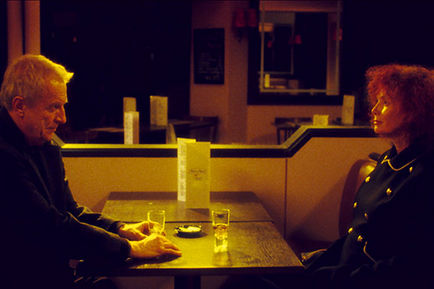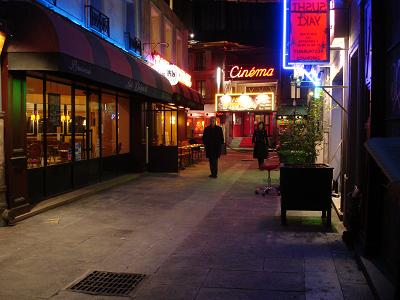I just heard the very upsetting news that the great Iranian filmmaker Jafar Panahi (The White Balloon, The Circle, Crimson Gold, Offside) was deprived today of his passport in Tehran, now making it impossible for him to leave Iran — reminding me, alas, of what happened to Pere Portabella in Franco Spain roughly half a century ago.
The two following short essays were commissioned by the Jeonju international Film Festival in February and March, 2009 and published in a bilingual catalog to accompany a Portabella retrospective held there in May.
It’s hard to keep up with all of Portabella’s activities these days, but his wonderful web site — which one can access in English, and which grows periodically in leaps and bounds — makes it somewhat easier to try. My most recent visit reveals that it’s now apparently possible to download several of his films on the Internet, directly from this site. I’m still eagerly anticipating the DVD box set that’s still apparently in the works, for which I wrote a commissioned essay (to be printed or reprinted in my next collection, Goodbye Cinema, Hello Cinephilia: Film Culture in Transition: see Publications and Events on this site), but meanwhile here are a couple of commentaries about two of his early films — one of which, Cuadecuc, Vampir, remains my favorite of his works to date. Read more

Not so much a fantasy as a fantasia, Alain Resnais’ first novel adaptation, his second adaptation (after Mélo) and, unless my memory fails me, his fifth film in CinemaScope (after Le chant du styrène, Last Year at Marienbad, L’amour à mort, and Private Fears in Public Places), this brittle comedy may also be the most purely surrealist of all his films, especially in its emphasis on irrational impulses (as well as its non-sequitur final shot). And the fact that it’s often creepy (as well as very personal) is surely more of a plus than a minus; it hasn’t been acknowledged nearly enough that Resnais’ best and most beautiful films — including Statues Also Die, Toute la mémoire du monde, Le chant du styrène, Night and Fog, Hiroshima mon amour, Marienbad, Muriel, Providence, Mon oncle d’Amérique, Mélo, and Not on the Lips, among others — usually turn out to be his creepiest. (An exception to this rule is L’amour à mort, which is exceptionally creepy but also far from Resnais’ best.)

Seen twice on Friday at the New York Film Festival — first at a press screening, then at the $40 opening — this is a film whose pastel hues and intricate color coding (e.g., Read more
One of my best known reviews, from the July 24, 1998 Chicago Reader. For those who’d prefer to read a shorter version of the same argument, I’ll start with my capsule reviews of the two films. — J.R.
Small Soldiers
Director Joe Dante (Gremlins, Innerspace, Explorers, Matinee) is a national treasure, and his lack of recognition by the general public may actually make it easier for him to function subversively. His unpretentious fantasy romps have more to say about the American psyche, pop culture, and the ideology of violence than anything dreamed up by Steven Spielberg or George Lucas. This delightful adventure about war toys running amok in suburban middle America is a synthesis and extension of most of his previous movies, with echoes of Gulliver’s Travels (including some of the satire). The toys in question are the villainous Commando Elite, fashioned using a microchip from the U.S. Defense Department to mercilessly slaughter the noble if freakish Gorgonites, a set of toys programmed (like other minorities one can mention) to hide and to lose; the Ohio citizens who wind up in the cross fire are strictly generic sitcom types, but we wind up caring about them almost as much as we care about the toys. Read more


